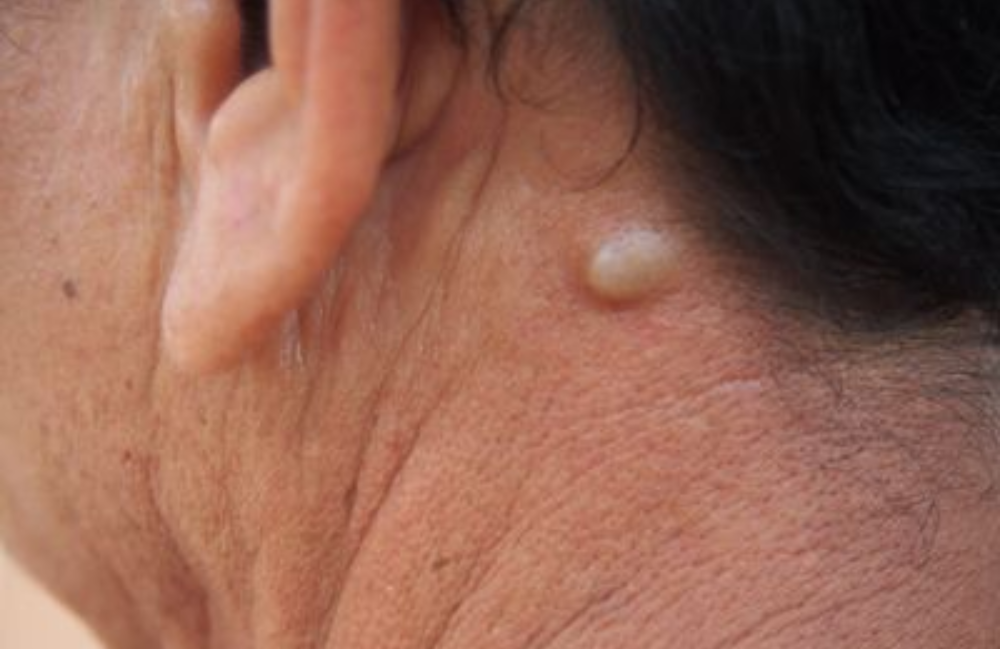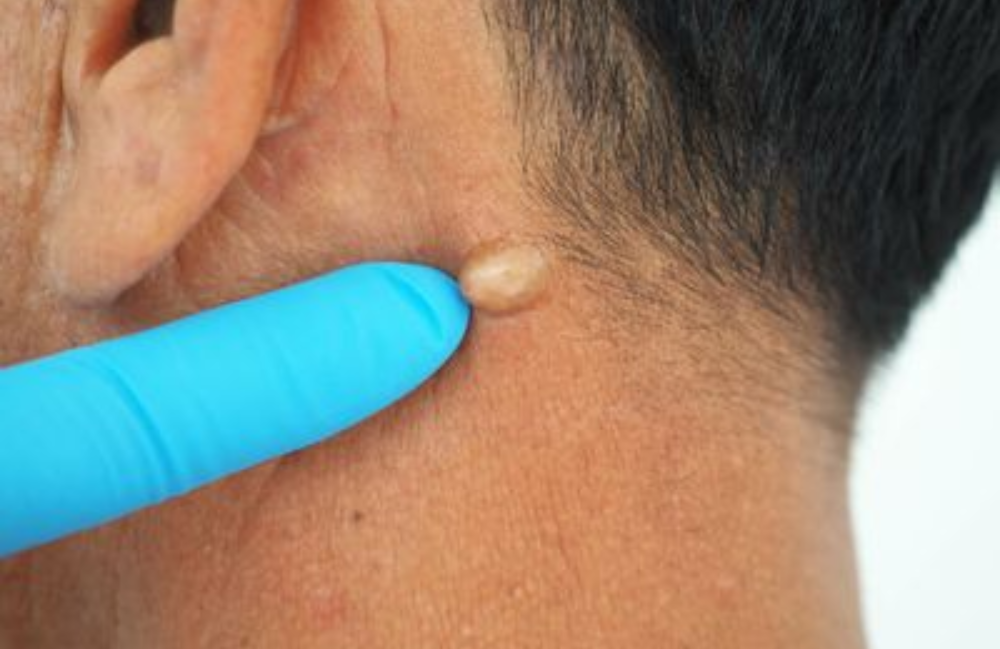
What is a Cyst?
A cyst is a closed sac-like structure filled with fluid, pus, or other material that can develop under the skin. While most cysts are noncancerous and harmless, they can become bothersome if they grow, become inflamed, or get infected. Cysts vary in size and can feel soft or firm to the touch, depending on their contents and type. Some cysts resolve on their own, while others may require medical intervention to prevent complications.
What Causes a Cyst?
Cysts can arise due to a variety of reasons, including:
- Blocked Oil Glands. Sebaceous cysts are often the result of a blocked oil gland, commonly seen on the face, neck, and torso.
- Infections. Certain infections may cause cysts to form as the body encapsulates the bacteria.
- Chronic Skin Conditions. Skin conditions like acne can lead to the development of cystic structures.
- Genetic Factors. Some cysts, like those seen in certain hereditary conditions, are passed down genetically.
- Injury or Trauma. Physical trauma to the skin may also lead to cyst formation as the body reacts to repair the tissue.
Understanding the root cause of a cyst can help determine the most effective treatment approach.
What Are the Symptoms of a Cyst?
While cysts are generally harmless, they can present various symptoms depending on their size, location, and whether they’re infected. Common symptoms include:
- Swelling or Lumps. Cysts often appear as round, raised lumps under the skin.
- Pain or Tenderness. Infected or inflamed cysts can cause discomfort, especially when touched.
- Redness and Warmth. These symptoms may suggest infection and may require prompt treatment.
- Fluid Discharge. When a cyst ruptures, it may release pus or fluid, leading to additional skin irritation.
If you notice any of these symptoms, it is wise to consult a dermatologist, as untreated cysts can sometimes lead to complications.
How Cyst Drainage Can Help
Cyst drainage is a minimally invasive procedure that can quickly alleviate discomfort by removing the contents of the cyst. This treatment is generally recommended when the cyst is painful, infected, or causing discomfort due to its size or location. By draining the cyst, we reduce the risk of infection and prevent further growth, offering immediate relief to patients. However, it is essential to seek professional care for drainage, as improper drainage can lead to infections or scarring.

FAQs
Can a cyst go away on its own?
Some cysts do resolve naturally, but others may persist or worsen over time.
Is cyst drainage painful?
Local anesthesia is typically used, making the procedure comfortable for most patients.
Can cysts reoccur after drainage?
Yes, some cysts may reappear, especially if the entire cyst wall isn’t removed.
Will drainage leave a scar?
Minor scarring is possible, but this varies based on cyst size and treatment technique.
When should I consider seeing a dermatologist about a cyst?
If a cyst becomes painful, changes in appearance, or appears to be infected, a consultation is recommended.
Hear from
Real Patients

Schedule Your Consultation Today
Ready to find relief from an uncomfortable or bothersome cyst? Metropolis Dermatology in San Jose, CA, provides expert cyst management tailored to your specific needs. Contact us today to learn more about our cyst drainage services and get back to feeling confident and comfortable in your skin!
